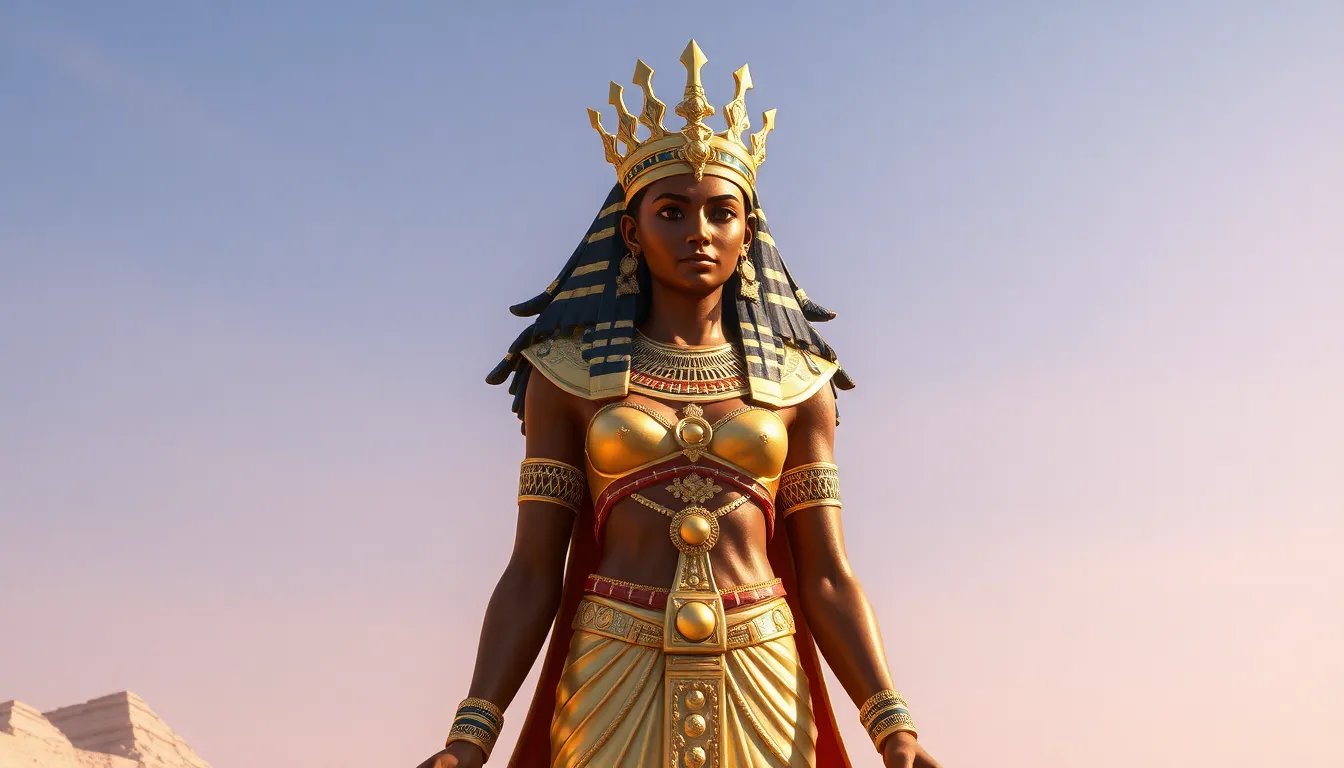The Divine Attributes of Isis: The Mother Goddess
I. Introduction
In Ancient Egyptian mythology, Isis is revered as one of the most important deities, embodying the essence of motherhood, fertility, and magic. She holds a significant place as the Mother Goddess archetype, representing the nurturing and protective qualities associated with motherhood. This article aims to explore the multifaceted nature of Isis, examining her historical context, her attributes as a mother and healer, her wisdom, and her duality as both a fierce warrior and a protector, as well as her enduring legacy in modern culture.
II. Historical Context of Isis
Isis’s origins can be traced back to the early dynastic period of Egypt, evolving through various stages of religious development. Initially, she was worshipped in localized cults, but over time, her significance grew, and she became a central figure in the Egyptian pantheon.
- Origins and Evolution: Isis likely began as a regional goddess before becoming universally recognized across Egypt. Her worship spread widely, reflecting the changing dynamics of Egyptian society.
- Key Myths: Some of the most notable myths associated with Isis include her marriage to Osiris, the birth of her son Horus, and her quest to resurrect Osiris after his murder by Set.
- Role in the Pantheon: Isis is often depicted alongside Osiris and Horus, forming a triad that underscores her importance within the mythological framework of Ancient Egypt.
III. The Motherly Aspects of Isis
Isis is primarily celebrated for her maternal characteristics, which resonate deeply within the context of ancient Egyptian values.
- Motherhood and Fertility: As the ideal mother, Isis embodies fertility, symbolizing the nurturing aspects of nature and the ability to give life.
- Protector of Children and Families: She is often invoked for protection during childbirth and is considered the guardian of mothers and their offspring.
- Symbolism of Nurturing and Compassion: Her nurturing nature is depicted in art and literature, where she is shown caring for her son Horus, emphasizing her role as a compassionate figure.
IV. Isis as a Healer
Isis’s attributes extend beyond motherhood; she is also revered as a powerful healer.
- Healing Powers: Isis is associated with various healing practices, believed to possess the ability to cure ailments and alleviate suffering.
- Myths of Healing: The most famous myth highlighting her healing abilities is the resurrection of Osiris, wherein she uses her magical skills to bring him back to life after his murder.
- Influence on Healing Traditions: Her legacy as a healer laid the groundwork for later practices, influencing both ancient and modern healing traditions.
V. Isis as a Symbol of Wisdom and Knowledge
Beyond her nurturing and healing roles, Isis is also regarded as a goddess of wisdom.
- Attributes of Wisdom: Isis is often depicted as possessing profound knowledge, especially in the realms of magic and rituals.
- Teacher and Guide: She is seen as a mentor to both gods and humans, imparting essential life lessons and guiding them towards wisdom.
- Connection to Arts and Sciences: In ancient Egyptian culture, she was associated with various domains of knowledge, including agriculture, medicine, and writing.
VI. The Duality of Isis: Warrior and Protector
Isis’s character is not solely defined by her nurturing attributes; she also embodies the duality of being a fierce warrior.
- Fierce Warrior Aspect: In myths, Isis demonstrates her ability to protect her loved ones with strength and determination.
- Strength in Battle: She is depicted as a formidable force, often taking on male deities to defend her son Horus and avenge Osiris.
- Balance of Nurturing and Fierceness: This duality illustrates the complexity of her character, representing both the gentle and protective aspects of femininity.
VII. Worship and Cult of Isis
The worship of Isis was widespread, with numerous rituals and practices dedicated to her.
- Rituals and Practices: Followers engaged in various ceremonies to honor Isis, invoking her for blessings of fertility, health, and protection.
- Temples and Worship Centers: Temples dedicated to Isis, such as the famous Philae Temple, became significant centers of worship and pilgrimage.
- Spread Beyond Egypt: The cult of Isis transcended Egyptian borders, gaining followers in Greece and Rome, reflecting her universal appeal.
VIII. Legacy and Influence of Isis in Modern Culture
The legacy of Isis continues to resonate in contemporary spirituality and culture.
- Resurgence in Contemporary Spirituality: Modern pagan and spiritual movements often invoke Isis, celebrating her attributes of motherhood, healing, and wisdom.
- Representations in Art and Literature: Isis has inspired countless works of art, literature, and media, symbolizing strength and compassion.
- Conclusion: The enduring legacy of the Mother Goddess, Isis, highlights her significance not only in ancient times but also in today’s world, continuing to inspire and empower individuals across cultures.
https://www.youtube.com/watch?v=y0xqrpXYep4




